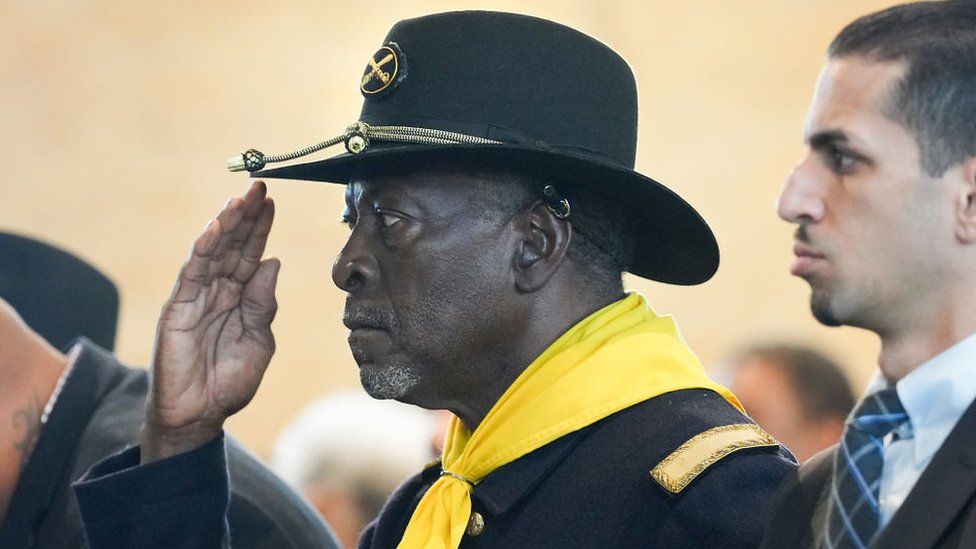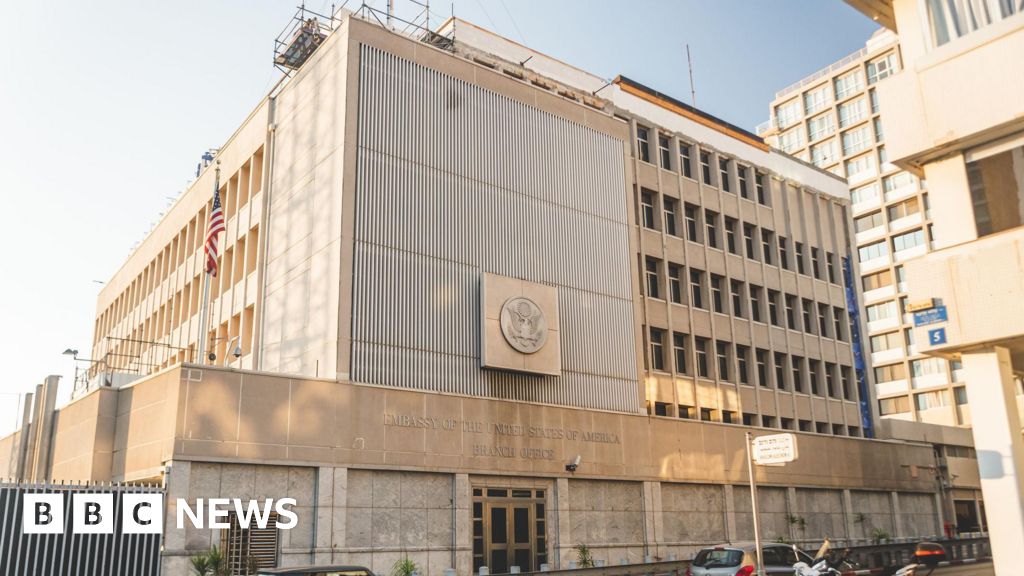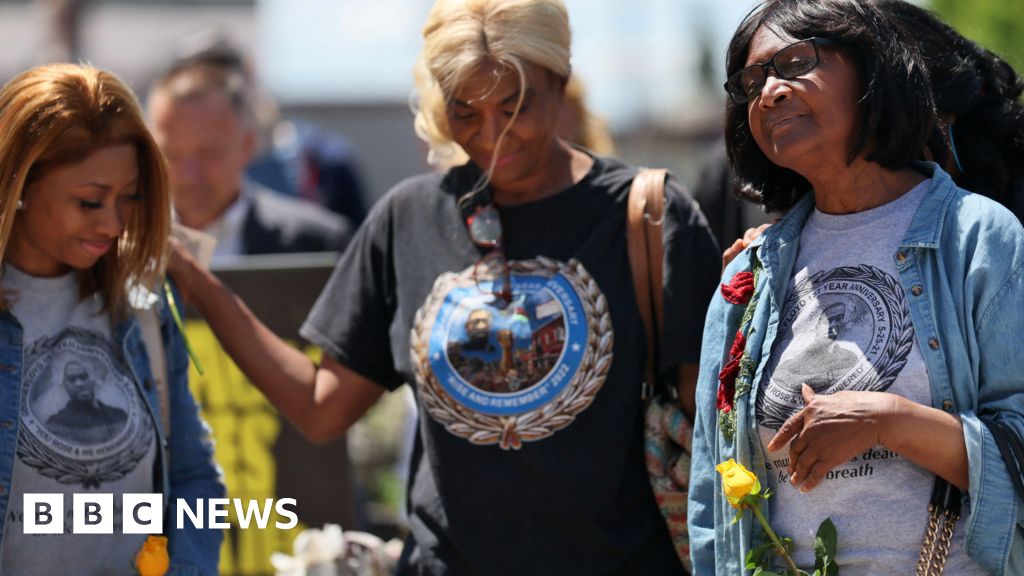ARTICLE AD BOX
 Image source, Houston Chronicle via Getty Images
Image source, Houston Chronicle via Getty Images
A Buffalo Solider before an event recognising the legacy of the soldiers from the 3rd Battalion, 24th Infantry Regiment
The US Army has overturned convictions of 110 black soldiers who were arrested after the 1917 Houston Riots.
A military review found the soldiers were not given fair trials and were "wrongly treated" because of their race.
Records will now be reclassified to characterise their military service as honourable.
The riots took place after months of racial provocations against members of a regiment known as "Buffalo Soldiers".
"By setting aside their convictions and granting honourable discharges, the Army is acknowledging past mistakes and setting the record straight," Secretary of the Army Christine Wormuth said in a statement on Monday.
The 3rd Battalion, 24th Infantry Regiment was one of four regiments of all black servicemen also known as "Buffalo Soldiers", a nickname dating back to the 1860s.
The Houston Riots took place on 23 August 1917 after months of racial tensions, including the violent arrest and assault of two black soldiers.
Amid rumours of additional threats to the soldiers from a white mob, a group of armed black soldiers assembled in the Texas city, where clashes erupted.
Nineteen people died in the violence, including civilians.
The army convicted 110 soldiers from the regiment on charges including disobedience of lawful orders, mutiny, and assault with intent to commit murder.
Ultimately, nineteen soldiers were executed, including 13 who were executed in secrecy within a day of being sentenced. Others were sentenced to life behind bars.
Historians say the process was "characterised by numerous irregularities", the Army said.
It remains the largest mass execution of American soldiers by the US Army.
In October 2020 and December 2021, the Army received petitions from retired general officers requesting clemency for all the soldiers.
Under Secretary of the Army Gabe Camarillo said: "We cannot change the past; however, this decision provides the Army and the American people an opportunity to learn from this difficult moment in our history."
The Army has said relatives of the soldiers may be entitled to compensation.

 1 year ago
56
1 year ago
56








 English (US) ·
English (US) ·